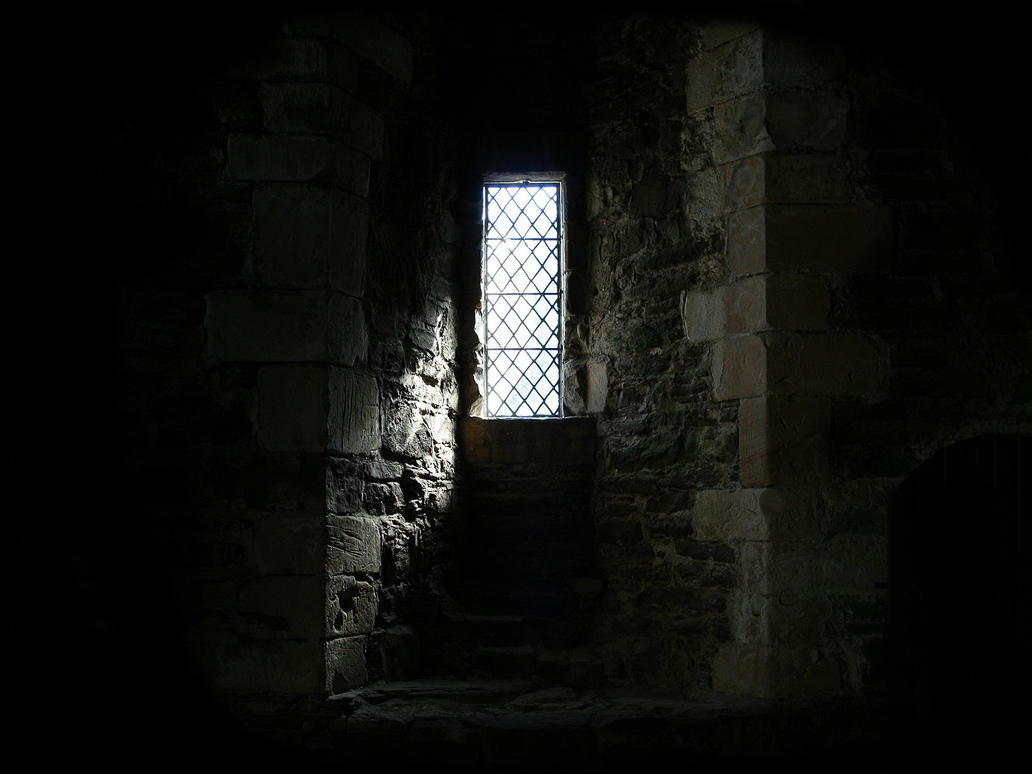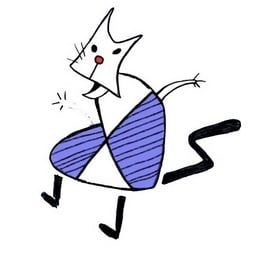Just something I was talking about with the wife this evening. She says that our house is not natural and used the phrase “out in nature”. But lots of animals build nests. And are we not animals just doing the same?
The issue is that many people don’t consider humans as part of the natural world.
Which is a ridiculous concept to me.
A beaver dam is a natural as the hoover dam. Both represent a species altering the environment for their benefit.
It’s kind of a pseudo-religious idea, the whole ‘natural is good and humans are not natural’… Gaia is good, humans have sin, humans are made separate and rule over nature and are therefore not part of ‘nature,’ God’s creation is perfect, all those ideas seem to have been merged into the dichotomy: there is nature and there is humanity.
Maybe a degree of refinement?
- dust accumulates and becomes dirt. Natural
- a beaver builds a dam out of nearby fallen logs, natural
- we create ovens and break down rocks to create bricks and get specific metal alloys to create wires and <many more steps in the middle> and you have the hoover damn. Part of the natural world? Sure. Organic? Mostly (carbon based, sans the metals). Refined? Unquestionably. Natural? Maybe not
Definitely refinement.
Man used to build ‘natural’ tools and shelters and some still do in the most remote parts of the planet. Mud huts and arrowheads are man-made yet also natural. I think we left the ‘natural’ path when we started smelting, domesticating, tanning, irrigating, etc. We took naturally formed materials and refined or processed them into something you can’t just stunble upon in nature. A billion planets in a billion years will not naturally produce an internal combustion engine without some sort of intelligent intervention.
The problem is just that if “natural” doesn’t mean “not made by humans” then it doesn’t really mean anything at all. If the things people made are natural, what’s excluded by using the word, exactly?
The supernatural
And the subnatural!
Walking through the health food aisle like “thank God I finally found some ghost-free food!”
AngryUpvote
Yes. Humans were born out of this universe just like everything else. It’s all nature. Even free will gets fuzzy when psychologists look into it. Some might say people have just as much free as a river that “chooses” its course and then fabricate a story after the fact about how they chose this or that, ignorant to external and internal (brain) influences. And then it starts to get fuzzy what’s internal and what’s external. Our brain is a part of the external world, and the external world we study is built by our subjective perceptions.
I concur. My gut is telling me there is a difference, but when I try to articulate it, I can’t.
Kind of like that senator who couldn’t define pornography, but her know it when he sees it.
To me bird nests and beaver dams are made with natural materials found in nature, and with little or no manufacturing and refinement. Think of all that human building materials go through during the manufacturing process. Yes the materials ultimately come from the Earth but then go through many refinement processes and assembly steps, and I think each step moves it farther from natural. You don’t see shingles and sheet rock laying around in a forest, those things are not natural.
I have two trains of thought on this. The first is naturally occuring vs man made. Stones are naturally occuring, bricks are not. While we as a species have always made shelter, there is something “unnatural” about modern homes with glass windows, running water, steel beams etc.
The second is natural vs synthetic. GMO’d food, hydrocarbons etc. I think the biggest difference to me regarding this is around how long we’ve been exposed to the substances. We’ve been exposed to certain foods and chemicals (from plants etc) for 100,000s of years and so our bodies handle them well. Our bodies haven’t adapted to things like polymers, microplastics or high fructose corn syrup, which is why these “unnatural” chemicals are considered bad.
I take issue with your second paragraph. It implies a order (natural=good) that just isnt there in the world, especially the exposure argument. Humans die pretty fast from cyanide and other plant based poison despite millenia of contact, but Teflon and metallic titanium (both comercially produced since roughly 80 years) are safe to impant. Also genetic modification started with doestication through selective breeding and crop selection - all comercially used species are modified in any number of ways.
Im a chemist and maybe had too many arguments with “nature good, chemicals bad” types, so please take my rant with some (very natural) salt.
I would argue first that humans are a part of nature, not apart from it. So, what we do is, in a sense “natural”. Many species of animal modify their environment to make it more to the animals desires. That said, the thing humans do, much better than any other animal we are aware of, is the control and application of energy. Many animals will pick up a rock and use that rock to bash stuff. Some animals may also pick up a rock with a particularly sharp edge or pointy bit and use that edge/point to crack open shells or husks. Hominids (not just modern humans) took that one step further and began preferentially picking out rocks which formed especially sharp or hard points and applying energy to that rock to form useful points. Once early hominids made that discovery, Oldowan tools proliferated in manufacture and use.
That manufacture and use was the advancement which set hominids apart from other animals. And, hominids also show signs of making choices which require planning ahead in rather abstract ways. To step back for a moment, Oldowan tools could be argued as hominids just following what they say happen “naturally” (without the directed energy usage of the hominid). One rock falls on another rock, and it breaks into a nice, pointy rock. Hominid see, hominid do. And we get hominids banging rocks together to make pointy rocks. But, then it goes further than that. Hominids start planning how to bang rocks together, spending time and more importantly energy, banging on a core to prepare it for a later strike, which will break off a flake with a fairly specific shape. The shaping of later stone tools likely involved the creation of tools (stone and organic) to manufacture the stone tools the hominids planned to use. Hominids at this point were planning multiple steps ahead in the process and expending energy to that goal.
This is where, I think, the idea of the application of energy really comes in. Consider what an early hominid would have to think about to produce something like an Acheulean tool. First off, they need to select a core, a large rock which may not be somewhere the early hominid would be able to safely sit and work it. So, they have to select a rock and carry it back “home”. This takes time and energy which is not being put to direct use in survival. It also exposes the hominid to danger, as carrying a large rock likely took both hands and may have been awkward. Once the hominid gets the rock home, they then sit and spend time and energy dressing the core. Breaking off bits which may not be as useful (waste flakes are a common byproduct of stone tool manufacture). Again, this is time and energy directed at a task which is not immediately useful, but shows planning several steps ahead. Finally, the hominid begins shaping the final flake they plan to remove. At this point, the tool maker must have a good understanding of how the rock is going to fracture. There has been a very deliberate, very well planned application of a lot of energy to get the rock ready for the final strike to break the flake off. All of that energy has been expended to a single goal of making that tool.
Granted, even this definition of “natural” has a gray area. Beavers direct a lot of energy making dams. But, I’d argue that they do not require the same level of foresight and planning. The “planning” for the damn doesn’t rise much above the level of random chance. Beavers use logs and sticks which are already there, with the more advanced action being the cutting of trees for use in the damn. But, they are not going tens of miles to select specific tress, it’s more a haphazard, “tree here, tree gets used”. Similarly, birds grab twigs and anything else of roughly the right shape to build their nests. And those dams and nests have a pretty direct application to survival. A rock which needs to be shaped before a flake can be broken off has a much less direct application to survival.
So, it’s a bit of as sliding scale, with a lot of things humans do being more “natural” and some things animals do being less “natural”. If I grab a fruit and eat it, that’s pretty “natural”. I’m directing energy to do something directly involved in energy. If I pick a fruit from a tree, put that fruit in a box, put that box in a boat and transport that box to the other side of the planet, so that I can receive a stack of bits of paper, that’s a lot less “natural”.
It depends on the situation, the topic, and even the person; words don’t have hard-coded meaning. For example, for me:
- A substance extracted directly from plants, even cultivated ones, is “natural”. One that relies on industrial processes is “man-made”.
- A desire path is “natural”, even if caused by human activity. A planned path is “man-made”.
So at the end of the day, perhaps it has to do with planning? At least for me. Man-made things aren’t just the result of human activity; they’re the goal of said human activity. That may or may not apply to what your wife was talking about, depending on the context of what she said - those nests are not the goal of human activity, unlike your house.
Man made (aka human made) is obviously anything made by a human. So let’s rather talk about natural vs. artificial.
Here, the concept probably boils to the idea that humans have a consciousness, and a free will, which are not part of nature, but something special. It’s kinda religious.
But artificial could also have a more generic meaning of something extraneous doing things in an ecosystem, and changing it in completely new ways.
It’s like in a game where the players are controlled by users. The users are not part of the game and can create things that would never come to existence by means of the game’s nature, i.e. via procedural world generation or NPC AIs. So e.g. villages in minecraft are natural, but user-built structures are artificial.
Note though that goods produced by nature are not strictly better than artificially created goods. To name two examples: (1) Carrots harvested from a generated village in minecraft are no different from player-planted carrots. (2) Medicine is not better just because it’s extracted from plants.
using Minecraft to compare natural vs artificial was something I wasn’t expecting to see today. Specially comparing the quality of carrots generated by the game vs carrots planted by the player.
And are we not animals just doing the same?
If you know what “man made” means you know this question is pointless?
Honestly I see everything we do as natural. It may be different to the other life on this planet, but that’s just the way nature is: different species do different things.
What we do isn’t even terribly unique. Other species have been shown to create and use tech, communicate, do agriculture, have societies, and manipulate other life to its gain. What sets us apart from them is that we’re especially good at all that, we’re nature’s ultra generalists.
I think it’s also important to note that nature does not equal good or even beneficial for the environment. Some of Earths most profound horrors come from non-human life (that which is often called natural). And other species have been known to destroy their environment to grow (such as the great oxygenation event or the rats that destroyed Easter Island)
This is the kind of shit that keeps me up at night. Thinking about all the casual horror in the world. I’ve read about these “slaver” ants that kidnap eggs from another colony only to raise them as slaves for the rest of their life. Or those wasps that lay their eggs inside other living insects which then hatch and consume the host.
There are so so many insects on earth, so these fucked up horrors are just happening on a massive scale all the time all around us.
Legit those exact wasps were on my mind as I wrote that nature has horrors. Creatures like that always make me think, “damn nature, you scary” lol
A beaver dam would be beaver made. A human house is man made.
And both are species altering the environment for their benefit. Both are Natural.
I mean yeah but I’ve never seen a pigeon blast off the top of a mountain for materials to make concrete.
Despite his new eyes, man was still rooted in matter, his soul spun into it and subordinated to its blind laws. And yet he could see matter as a stranger, compare himself to all phenomena, see through and locate his vital processes. He comes to nature as an unbidden guest, in vain extending his arms to beg conciliation with his maker: Nature answers no more, it performed a miracle with man, but later did not know him.
To sum up how I understand this poetic piece of text (The Last Messiah from a Norwegian philosopher Zapffe). It‘s a feature of consciousness, that we can even perceive ourselves as apart from nature. Considering our subjugation of it in various ways and currently underway destruction of the climate, it makes sense to me too to differentiate.
My belief on this is that it is related to the scale of effect we have on the environment we’re in. A beaver can be considered a keystone species in it’s habitat because it can build a dam and have an outsize effect on other species in it’s habitat by changing water movement. Humans are extreme keystone species. Our actions alter ecosystems on a global scale. No other species has such an impact. Therefore I don’t think it is fair that we have such an impact on all of the other species on the planet. A beavers dam only affects the forest it is in.
I’m also thinking beyond housing. It seems like such an arbitrary distinction to say that things humans make aren’t “natural “ but things that animals make are.
Not to be too pedantic but aren’t we as humans part of nature? Therefore what we make is a direct natural creation?
Is it the scale that makes things unnatural? I’ve never seen animal cities, but a single anthill has a higher population density than any city, and it’s 100% not “naturally “ occurring.
It’s all with respect to humans. Humans aren’t making the bird nests, so they’re natural, not man-made. Our houses don’t over naturally, we build them.
From the bird’s perspective, sure, nests might be bird-made and humans are part of nature. But at humans, we’ve also done a ton to shape the world and separate ourselves from nature. If your house were a fire-heated lean-to in the woods, there might be less a distinction between it and “out in nature,” but if you’re living in a city or town, your immediate surroundings probably have been heavily constructed and modified by humans.
Nature - by definition, are things found in the physical world that aren’t human creations.
Modern homes require electricity, clean running water, modern insulation, glass, smoke detectors, town governments oversight, corporate resources, insurance, etc. All of these things are human creations.
Man-made is similar to hand-made. Both are distinct from machine-made.
Nature is a bit of a spectrum. Something being handmade is closer to natural than something from a factory. Still, neither are natural.
But you see the arbitrary distinction that you’re setting up by differentiating man as separate from nature. I’d argue that humans themselves are “natural” creatures. But every human alive is “man made”
I’m not making a philosophical or physiological distinction.
I’m making a semantic and etymological one.
Nature, as its defined in the English language, is used to describe things that aren’t human creations.
Sometimes it’s used to describe things that, even if manipulated by humans, is distinct from an artificial, chemical or industrial process. Like “natural remedies”. Sometimes it’s just a marketing term, “natural flavors” in a soda brand.
Humans categorically can’t be nature - because we use the word “nature” specifically to distinguish our own creations from the rest of the world.
A human can choose to live in nature, meaning they’re living in a place that is plurality not man-made. An cabin in an unplanned forest, versus Midtown Manhattan. But even then, the human is the not-nature thing. They’re only surrounded by it.
I was at the giant copper mine outside of Salt Lake City, Utah. In the tour, they said, to appease conservationists, they basically relocate the mountain as they dig and add vegetation. So, the mountainous area that surrounds the mine is all man-made. Nature didn’t erode the rocks or push them up even though mountains are considered purely natural. It doesn’t really follow a beaver creating a new river because it built a dam either because it didn’t divert anything; it simply pushed it out of the way.
Man made = interfering with nature for profit. Natural = interference in nature for comfort.
Side note: I can’t help but picture a cartoon style in my head of a fat business tycoon with a shovel, yelling at the Lorax, “We’re putting it back!”
So if you build yourself a house it’s nature?
Most houses that you build yourself usually flow with the land.
Houses corporations build are for profit and usually come with more destruction for the environment.












